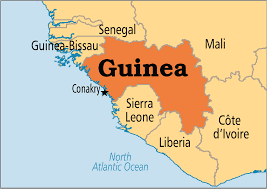APA – Conakry (Guinea) – The aim was to review the decisions of the 4th session and to examine the level of implementation of the decisions taken at that time.
It was also an opportunity to discuss the progress made in disseminating the resolutions of the framework for dialogue.
The 5th session of ordinary meetings of the Follow-up Committee for the resolutions of the inter-Guinean inclusive dialogue framework was held at the Prime Minister’s Office on Monday 7 August. It was chaired by the Minister of Foreign Affairs, African Integration and Guineans Living Abroad on behalf of the Prime Minister.
At the outset, Dr. Morissanda Kouyate recalled that the Follow-up Committee had taken stock of the recommendations that had been made and the decisions that had been taken, and had also reviewed those
that had been implemented or executed.
“It was a very good forum for discussion, and I believe that the report will be circulated,” he said at the end of the meeting.
According to the facilitators’ spokeswoman, several decisions have been implemented to date, and recommendations have been made for those that have not. Dr Makame Traore pointed out that the initiative of the Ministry of Territorial Administration and Decentralisation to present the progress of the transition timetable to the various players. The committee requested that this meeting be formally organised.
“It has been agreed that, at the end of the steering committee meeting on the timetable, a report will be made to the socio-political players (…) This will reassure everyone (…) The fact that everyone is at the same level of information will help to calm and facilitate the conduct of the transition,” Mr. Traore reported
The meeting of the monitoring committee of the inter-Guinean dialogue framework was attended by new members. The National Alliance for Change and the Alliance for the Republic, which recently resigned from
Cellou Dalein Diallo’s coalition, joined the initiative.
Parties close to the junta worried?
The meeting comes two days after a major meeting between 17 political coalitions and certain civil society organisations considered to be close to the junta.
On Saturday 5 August, the leaders of these coalitions, including Lansana Kouyate, former Prime Minister and president of the PEDN party, Ousmane Kaba of the PADES party, Bah Oury of the UDRG and Faya Milimono of the ‘Bloc Liberal,’ met with the aim of joining forces.
According to Bah Oury, a former member of the Union of Democratic Forces of Guinea led by the opposition leader Cellou Dalein Diallo, the aim is “to enable political parties, political coalitions, civil society umbrella organisations and social forces, in a responsible manner, to meet on a regular basis to discuss the situation in the
country, examine government proposals and make alternative and constructive proposals to the transitional authorities.”
“As we say, we are partners in the current transition, and that’s our business too,” he told APA.
In Guinea, more than eight months since the 24-month transition period agreed between the Economic Community of West African States (ECOWAS) and the ruling junta came into force, many political observers are already fearing a slippage in the transition timetable.
ASD/ac/fss/as/APA


